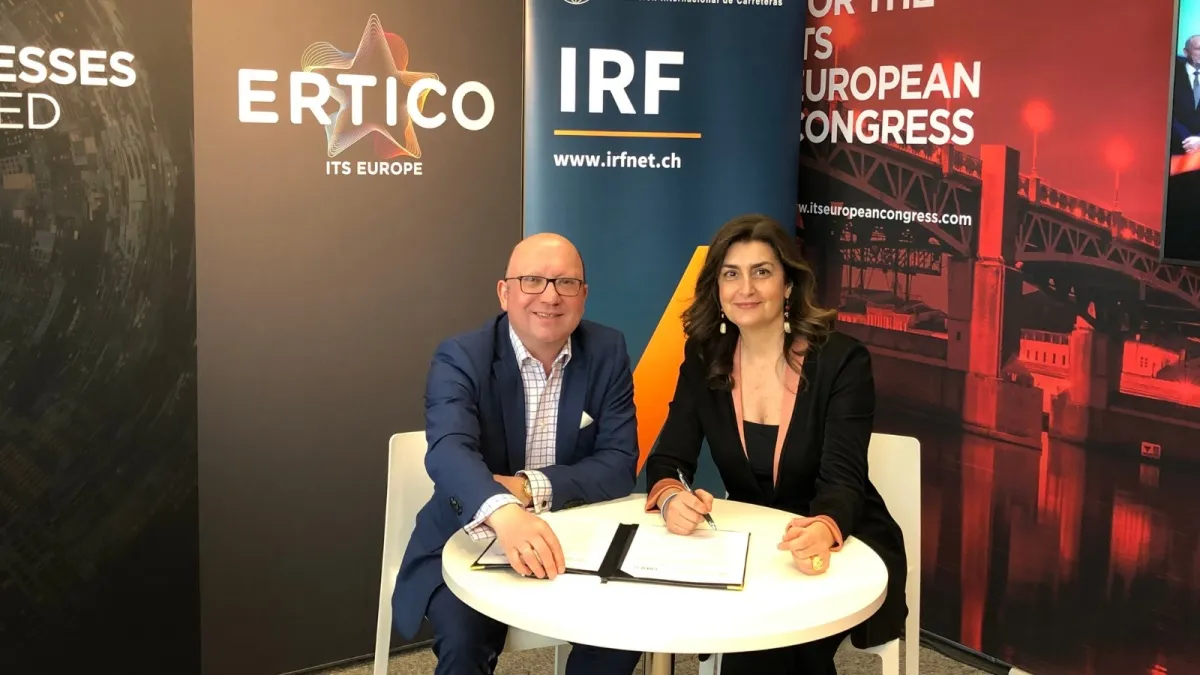Securing sufficient funding to complete truly European infrastructure projects is the major challenge lying ahead of EP's three co-rapporteurs on the Commission's proposal of a new funding instrument for Trans European transport, energy and ICT networks. The first joint meeting of TRAN and ITRE members to discuss the Connecting Europe Facility (CEF) took place on yesterday. TRAN-members Dominique Riquet (France) and Inés Ayala-Sender (Spain), and Adina Ioana Valean (Romania) from the committee for Industry,
March 28, 2012
Read time: 2 mins
Securing sufficient funding to complete truly European infrastructure projects is the major challenge lying ahead of EP's three co-rapporteurs on the Commission's proposal of a new funding instrument for Trans European transport, energy and ICT networks. The first joint meeting of TRAN and ITRE members to discuss the Connecting Europe Facility (CEF) took place yesterday.
TRAN-members Dominique Riquet (France) and Inés Ayala-Sender (Spain), and Adina Ioana Valean (Romania) from the committee for Industry, Research and Energy recognized the ‘groundbreaking nature’ of the €50 billion fund and welcomed the Commission's proposal as ‘ambitious’, if not ‘audacious’. They will have to achieve a large backing from Parliament – including from members of the Budget and Regi committees - in order to convince Council to sign on.
"It is within this vicious circle of postponed investments awaiting better times which never come, that the CEF can be seen as an opportunity to be innovative and creative on the financial market", said Adina Ioana Valean. Transparent procedures and clear priorities of the CEF will be key in order to provide the “stable and predictable environment private investors seek,” she added, referring to the tremendous financial needs - one trillion euros (US$1.336 trillion) for energy networks, €500 billion for transport and €270 billion for ICT.
Riquet pointed out that member states should decide on concrete funding figures and sources as soon as possible to enable shaping the centralised governance and arbitrage models of the CEF and start building synergies between the three sectors. “Our biggest challenge will be to ensure that we really obtain sufficient funding to create the most European added-value”, said Ms Ayala-Sender.
An expert hearing on CEF will be held on 24 April, at the next joint meeting ITRE-TRAN. The Committee’s vote (first reading) is scheduled for November.
The CEF is the financing instrument for the Transeuropean Networks for Transport, Energy and Telecommunications. The new approach is placing all three TEN sectors under one single financing umbrella which is centrally managed by the Commission and the TEN-T Agency. The management of the CEF will be based on competitive calls for proposals (or beneficiaries identified in the work programme) for the allocation of funding, and a ‘use it or lose it principle’ to ensure effective implementation.
TRAN-members Dominique Riquet (France) and Inés Ayala-Sender (Spain), and Adina Ioana Valean (Romania) from the committee for Industry, Research and Energy recognized the ‘groundbreaking nature’ of the €50 billion fund and welcomed the Commission's proposal as ‘ambitious’, if not ‘audacious’. They will have to achieve a large backing from Parliament – including from members of the Budget and Regi committees - in order to convince Council to sign on.
"It is within this vicious circle of postponed investments awaiting better times which never come, that the CEF can be seen as an opportunity to be innovative and creative on the financial market", said Adina Ioana Valean. Transparent procedures and clear priorities of the CEF will be key in order to provide the “stable and predictable environment private investors seek,” she added, referring to the tremendous financial needs - one trillion euros (US$1.336 trillion) for energy networks, €500 billion for transport and €270 billion for ICT.
Riquet pointed out that member states should decide on concrete funding figures and sources as soon as possible to enable shaping the centralised governance and arbitrage models of the CEF and start building synergies between the three sectors. “Our biggest challenge will be to ensure that we really obtain sufficient funding to create the most European added-value”, said Ms Ayala-Sender.
An expert hearing on CEF will be held on 24 April, at the next joint meeting ITRE-TRAN. The Committee’s vote (first reading) is scheduled for November.
The CEF is the financing instrument for the Transeuropean Networks for Transport, Energy and Telecommunications. The new approach is placing all three TEN sectors under one single financing umbrella which is centrally managed by the Commission and the TEN-T Agency. The management of the CEF will be based on competitive calls for proposals (or beneficiaries identified in the work programme) for the allocation of funding, and a ‘use it or lose it principle’ to ensure effective implementation.









